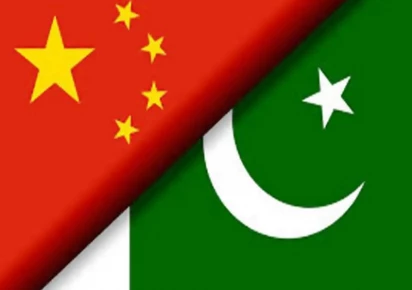ISLAMABAD – From a humble government school classroom to the global stage, Shafiqa Iqbal’s journey embodies the inspiring rise of Pakistani women in data science. Despite family restrictions, she applied to university in secret, fueled by unwavering determination. Today, she shines as a Big Data Engineer at Google Poland and a top-rated Upwork freelancer—proof that perseverance can rewrite destinies.
This shift signals something bigger: the long-held stereotype of data science as the domain of hoodied “tech bros” is fading. In Pakistan, a new wave of aspiring female data scientists is emerging—driven by ambition, resilience, and endless curiosity. Their talents are increasingly recognized globally, with women from Pakistan earning roles at giants like Google and Meta.
Shafiqa’s success reflects the broader transformation within Pakistan’s tech ecosystem. She earned a scholarship to Punjab University, honed her skills through freelancing and startups, and ultimately landed international opportunities. Her mantra? “If you don’t see a role model, become one.” It’s a powerful reminder that representation begins when someone steps forward.
Now, women are rising in STEM. Once guided toward traditional careers like teaching or medicine, many are now choosing data science. A report highlights that female enrollment in computer science programs at LUMS climbed nearly 40% between 2018 and 2023—an uplifting indicator of change Associated Press of Pakistan.
Institutions are playing a pivotal role, too. Universities such as LUMS, FAST, and COMSATS are cultivating inclusive environments through coding bootcamps, AI clubs, and female-led mentorship programs. These initiatives are reshaping mindsets and encouraging young girls to see themselves as future data leaders.
A machine learning specialist at LUMS shared how this transformation unfolded: “In my first semester, there were only three girls in a class of 40. Now, we’ve built a community. We share resources, mentor juniors, and make sure no one feels out of place.”
Another student from COMSATS emphasized the impact: “It’s not just about numbers—we’re influencing decisions in business, healthcare, and governance.”
Even early exposure is making a difference. A FAST student recalled how a two-day Python bootcamp in high school reframed her view of tech: “I realized data science isn’t just about data; it’s about solving real-world problems like climate change and social equity.”
This progress extends beyond academia. Women are leading AI-driven data projects at companies like Systems Limited and NetSol Technologies, playing crucial roles in transforming banking, healthcare, and logistics—for millions.
The private sector increasingly values diversity—not just as a moral imperative, but as a strategic advantage. Diverse teams spark better problem-solving, broader perspective, and more nuanced solutions, especially in data science where human insight is essential dasca.orgIBM.
Of course, challenges remain. Women remain underrepresented in mid and senior-level data roles; globally, only about 24 % of data scientists are women—up from 15 % in 2018 UW Online Collaboratives. But within Pakistan, the upward momentum continues. Institutions, incubators, and progressive companies are laying the groundwork for a more inclusive—and innovative—future.
As a Principal Analyst at HRCG Group UK and former lecturer shared: “Success isn’t a straight road. It’s about learning, adapting, and leading—wherever you end up.”
This rise isn’t just a statistic—it’s a cultural shift. Pakistani women are not just entering tech—they’re shaping it. And Buzz Pakistan is here to celebrate and magnify their brilliant journey.
SOURCE: The Nation



